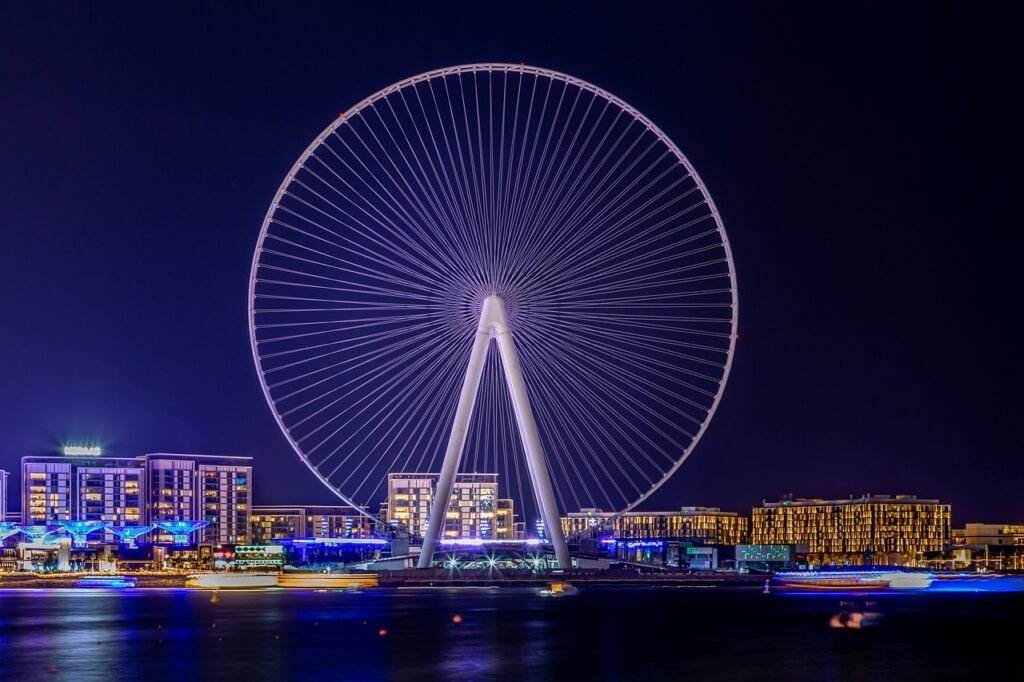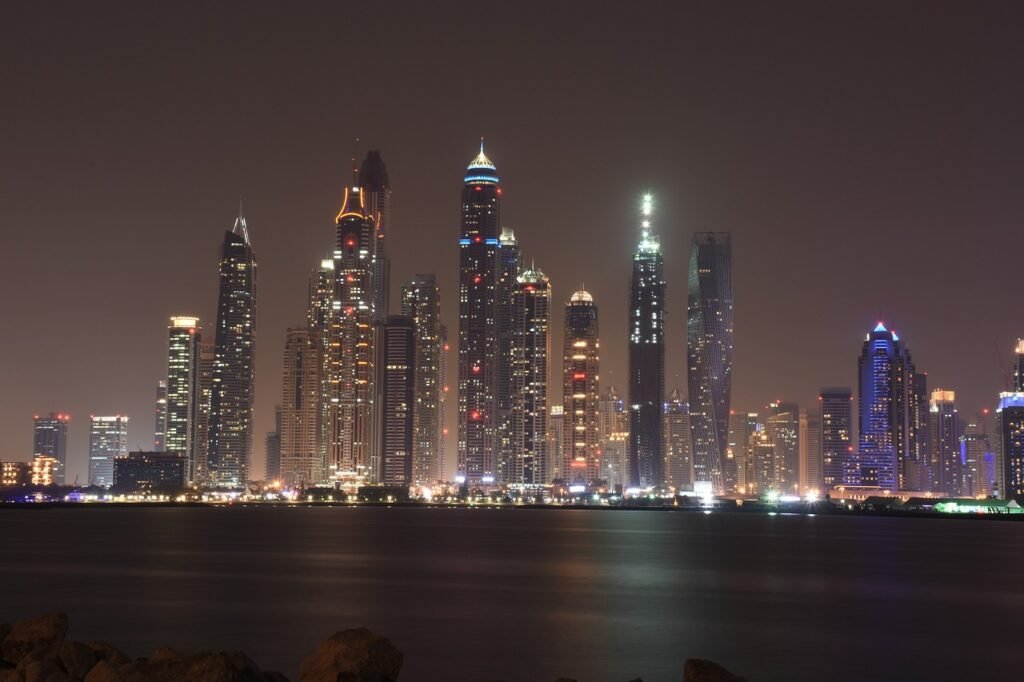
Dubai, one of the seven emirates that make up the United Arab Emirates (UAE), has a rich history that spans several centuries, evolving from a small fishing village to a global city known for its modern architecture, luxury shopping, and vibrant nightlife. Here’s an overview of Dubai’s history:
Early History
- Pre-Islamic Era: Archaeological evidence suggests that the area around Dubai was inhabited as far back as 3000 BCE. It was known for its pearl diving and fishing communities.
- Islamic Era (7th Century): The arrival of Islam in the 7th century significantly influenced the region. Dubai became part of the Islamic caliphates and benefited from the spread of Islam and the associated trade networks.
Medieval Period
- Pearl Trade: By the 18th century, Dubai was established as a significant trading port. The economy was primarily based on fishing, pearl diving, boat building, and providing lodgings for traders.
- Bani Yas Tribe (1833): Dubai’s modern history began when around 800 members of the Bani Yas tribe, led by the Al Maktoum family, settled in the area. The Al Maktoum dynasty continues to rule Dubai to this day.
19th Century
- British Protection: In the early 19th century, Dubai entered into an agreement with the British, who promised protection against any attacks by neighboring tribes. This led to increased security and stability, fostering economic growth.
- Trade and Commerce: Dubai’s strategic location on the Persian Gulf facilitated its growth as a major port. It became a center for the trade of gold, spices, and other goods.
20th Century
- Oil Discovery (1966): The discovery of oil in Dubai in 1966 marked a turning point. While the oil reserves were not as vast as in neighboring Abu Dhabi, the revenues funded extensive infrastructure development.
- Formation of UAE (1971): Dubai became one of the founding members of the United Arab Emirates on December 2, 1971, following the end of British protection treaties.

Modern Era
- Economic Diversification: Under the leadership of Sheikh Rashid bin Saeed Al Maktoum and later his son Sheikh Mohammed bin Rashid Al Maktoum, Dubai diversified its economy to reduce dependency on oil. The focus shifted to tourism, real estate, aviation, and financial services.
- Construction Boom: The late 20th and early 21st centuries saw a construction boom. Iconic projects like the Burj Al Arab, Palm Jumeirah, and Burj Khalifa (the world’s tallest building) were completed.
- Global City: Today, Dubai is recognized as a global city and a major business hub. It hosts international events like the Dubai Shopping Festival, Dubai World Cup, and Expo 2020 (postponed to 2021 due to the COVID-19 pandemic).
Culture and Society
- Cultural Heritage: Despite rapid modernization, Dubai has preserved aspects of its cultural heritage. The Dubai Museum, Al Fahidi Fort, and various cultural festivals reflect the emirate’s history and traditions.
- Cosmopolitan Society: Dubai is home to a diverse expatriate population, making it one of the most cosmopolitan cities in the world. It has a rich cultural mix, influenced by people from around the globe.
Key Milestones
- Establishment of Jebel Ali Free Zone (1985): One of the world’s largest free zones, it significantly boosted foreign investment.
- Dubai Internet City and Dubai Media City (2000): These hubs attracted global tech and media companies, further diversifying the economy.
- Dubai International Financial Centre (2004): Positioned Dubai as a leading financial hub in the region.
Dubai’s history is a testament to its strategic vision and ability to adapt and thrive amidst changing economic landscapes. Its transformation from a modest trading port to a global metropolis is one of the most remarkable urban success stories of the modern era.
I really like it, keep it up.
It is a very interesting place and charmful so one day i want to explore it
Very awsome!